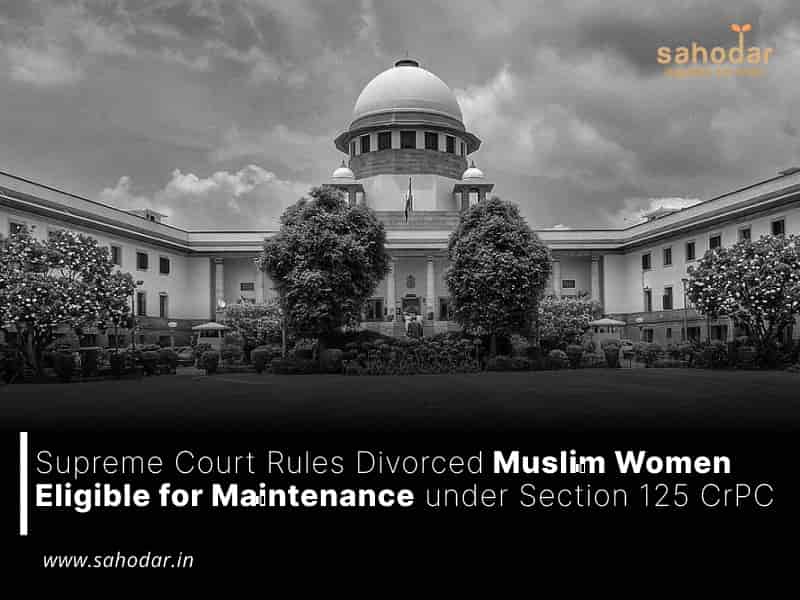A bench of Justices BV Nagarathna and Justice Augustine George Masih pronounced separate but concurring judgments.
The Supreme Court, in a recent ruling on Wednesday, affirmed that a divorced Muslim woman has the right to seek maintenance under Section 125 of the Criminal Procedure Code (CrPC) from her former husband, as established in the case of Mohd Abdul Samad vs State of Telangana and anr.
Justices BV Nagarathna and Augustine George Masih, sitting on the bench, delivered separate but concurring judgments. They upheld the right of the Muslim woman after a petitioner, a Muslim man, contested a directive from the Telangana High Court to pay ₹10,000 as interim maintenance to his former wife.
“We are hereby dismissing the criminal appeal with the major conclusion that Section 125 CrPC would be applicable to all woman and not just married woman,” Justice Nagarathna said pronouncing the verdict.
The Court further stated that if a Muslim woman gets divorced during the pendency of her application under Section 125 CrPC, she may seek recourse under the Muslim Women (Protection of Rights on Marriage) Act, 2019.
Highlighting an additional avenue provided by the 2019 Act alongside Section 125 CrPC, the Court underscored its role in providing relief.
In a landmark ruling in the Shah Bano case, the Supreme Court had previously affirmed that Section 125 CrPC is a secular provision applicable to Muslim women as well.
However, the applicability of this ruling was later overridden by the Muslim Women (Protection of Rights on Divorce) Act, 1986, which was upheld as valid in 2001.
The current petition before the Supreme Court concerns a dispute over a claim filed under Section 125 of the CrPC by a respondent who was the wife of the petitioner before their divorce.
The issue arose from a Family Court order mandating the petitioner to pay interim maintenance of ₹20,000 per month, which was subsequently reduced to ₹10,000 per month by the High Court. The High Court also directed the Family Court to resolve the matter within six months.
The petitioner’s counsel argued that, in light of the Muslim Women (Protection of Rights on Divorce) Act, 1986, a divorced Muslim woman is not entitled to claim benefits under Section 125 CrPC. They further contended that the 1986 Act provides more advantageous provisions for Muslim women.

